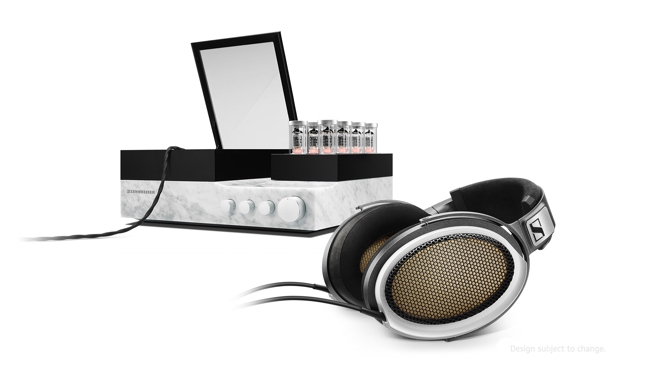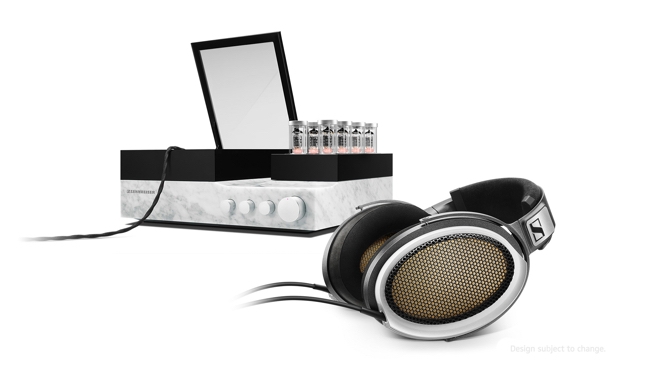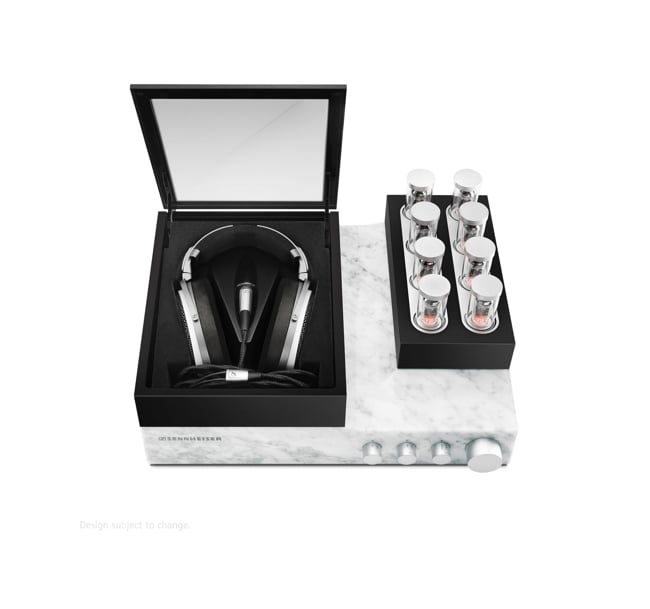
 Sennheiser Orpheus
Sennheiser Orpheus
The new Orpheus headphones from Sennheiser may just have won the award for the Best Headphones ever all over again (not to mention the most expensive).
Headphones are great. Typically, they give you much better performance for your money than if you were to spend the same amount on loudspeakers. Headphones at the higher end of the quality scale benefit from having their own amplifiers, sometimes combined with a high quality digital-to-analogue converter.
After a marketing teaser campaign that has been notable for its epic ambitions as much as its obscurity, we now know that the subject of the enigmatic interactive campaign is a new set of headphones.

The ambition and cost and ability of these headphones is so immense, it's tempting to compare them to 'ultimate' automobiles like the Bugatti Veyron.
To stick with this comparison, if you were to sell your forgo your Bugatti for the new Sennheisers, you could only buy ten of them.
That's right. They're €50,000 a pair. That, to put it mildly, is a bit expensive for a pair of headphones.
But to understand why these are so expensive, it's important to understand why, as much as how, they have been built.
Rebirth of Orpheus
At the very start of the '90s, Sennheiser released a product called 'Orpheus'. It was a pair of electrostatic headphones that were powered by a no-compromise amplification system. The very big advantage with electrostatic headphones is that the physical transducer is extremely light. It has almost no significant mass. And yet, it covers a large area. The upshot of this is that it can reproduce very high and very low frequencies, without the resonances and distortions that are typical of other headphone architectures. The only trouble is that it's a rather tricky thing to make and it needs a high voltage amplifier to drive it: you can't just plug electrostatics into your iPod.
The original Orpheus were hailed as the Best Headphones Ever. Twenty five years later (and they've literally had a team working on it all that time), Sennheiser revealed the new Orpheus. And it is the stuff of legends. Honestly, I don't think I've ever seen a more obsessively designed audio product and I mean that in the best possible way.
Detailing the cost
Just to give you a flavour for the attention to detail in the world's best headphones, the plinth that holds the valve (tube) based amplifier is made from the same type of Italian marble as Michelangelo's David. But don't be distracted by this seemingly extravagant choice of materials. Valve (tube) amplifiers are susceptible to vibration and airborne noise, so the amplifier has a soft base and the valves themselves are tightly coupled to the marble itself, whose mass acts as a very effective damper.
The high voltage amplifier for the headphones is actually in the phones themselves, to minimise cable losses. Obviously, there's no room for valves (tubes) in the 'cans, so Sennheiser uses MOS-FET transistors, which have a similar transfer characteristic to valves (tubes).
The digital-to-analogue conversion in the Orpheus massively improves on more conventional devices. It's equipped with eight top-end ESS Sabre ES9018 DAC chips, which are themselves considered to be of 'reference' quality. This arrangement effectively gives a resolution of 32 bits with a sample rate of 384Khz. Orpheus can also accept DSD (Direct Stream Digital) inputs.
But, for whom?
So, why have they done this? Why has Sennheiser made a product that only the ultra-rich can afford?
I suspect it's not to make money. Even if Sennheiser does make a profit on the Orpheus, it probably won't sell enough of them to justify all the work that's gone into developing it.
What seems far more likely is that Sennheiser simply and explicitly wanted to be the best in the world. In marketing terms, there's probably nothing more valuable than being able to say "of all the people that make [this type of product], we're the best you can get."
Even if it's for stupid money. Even if you're only going to sell ten per year if you're lucky. And even if some people will always think it's nothing but a reckless extravagance; it's still worth it to be obviously and unambiguously the best.
Would I buy one? In an egalitarian world where everyone was a billionaire, yes, I definitely would. I've heard some very good audio in my career and, if this is significantly better, then, yes, I would want one.
Some people will buy it because it's expensive and because they can brag about it. But what I like is the prospect that some people will buy this, enjoy it and think it's money well spent.
Recommended for: Hearing the best music reproduction ever
Not recommended for: Jogging
Tags: Audio


Comments